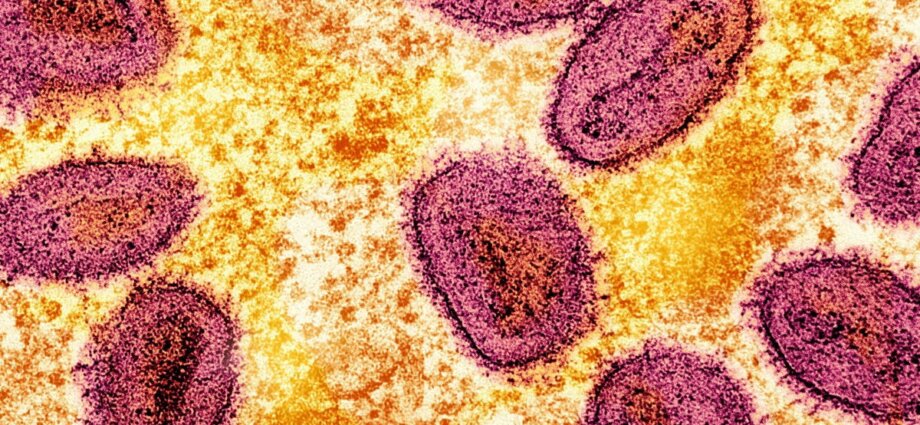The first UK case of a potentially deadly strain of the mpox virus has been detected in London.
The UK Health Security Agency (UKHSA) said the risk to the UK population from the clade 1b mpox strain “remains low”.
The person involved had been on holiday in Africa and travelled back to the UK on an overnight flight on 21 October.
They developed flu-like symptoms more than 24 hours later and, on 24 October, started to develop a rash which worsened in the following days.
The person attended an emergency department in London on 27 October, where they were swabbed, tested and sent home to isolate while waiting for the results.
They have now been transferred to the Royal Free Hospital high consequence infectious diseases (HCID) unit for treatment.
Fewer than 10 people who are thought to have come into contact with the patient are initially being traced, the UKHSA said.
These are household contacts, although the UKHSA is “still working” on the number of people it may have to contact trace.
Mpox only spreads between people when there is close contact.
Clade 1b mpox has been widely circulating in the Democratic Republic of Congo (DRC) in recent months and there have been cases reported in Burundi, Rwanda, Uganda, Kenya, Sweden, India and last week in Germany.
Professor Susan Hopkins, chief medical adviser at UKHSA, said: “It is thanks to our surveillance that we have been able to detect this virus. This is the first time we have detected this clade of mpox in the UK, though other cases have been confirmed abroad.
“The risk to the UK population remains low, and we are working rapidly to trace close contacts and reduce the risk of any potential spread. In accordance with established protocols, investigations are underway to learn how the individual acquired the infection and to assess whether there are any further associated cases.”
Common symptoms of mpox include skin rash with blisters, spots or ulcers that can appear anywhere on the body, fever, headache, backache and muscle aches.
A rash usually appears one to five days after a fever, headache and other symptoms.
Spread may occur through direct contact with rash, skin lesions or scabs caused by the virus, including during sexual contact, kissing, cuddling or other skin-to-skin contact.
There is also a risk from contact with bodily fluids such as saliva or mucus; contact with bedding or towels or clothing; and a possibility of spread through close and prolonged face-to-face contact such as talking, breathing, coughing, or sneezing.
Steve Russell, NHS national director for vaccination and screening, said: “The NHS is fully prepared to respond to the first confirmed case of this clade of mpox.
“Since mpox first became present in England, local services have pulled out all the stops to vaccinate those eligible, with tens of thousands in priority groups having already come forward to get protected, and while the risk of catching mpox in the UK remains low, if required the NHS has plans in place to expand the rollout of vaccines quickly in line with supply.”











